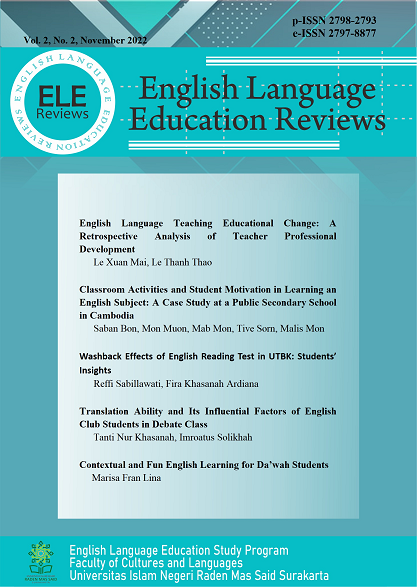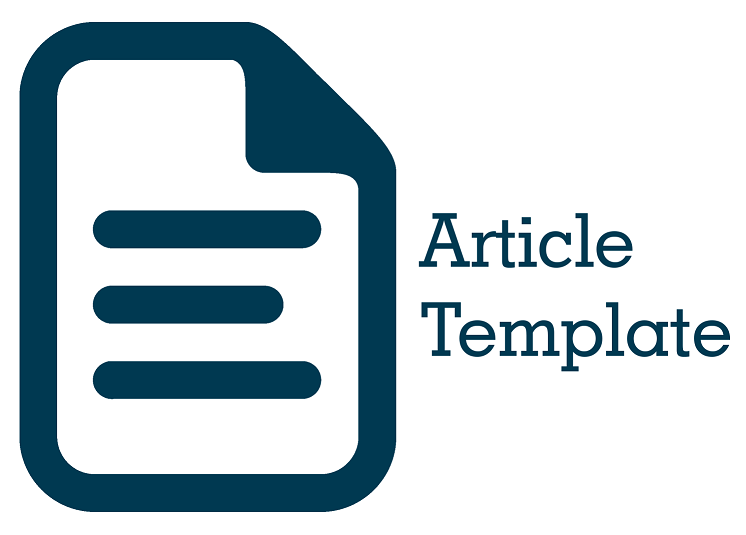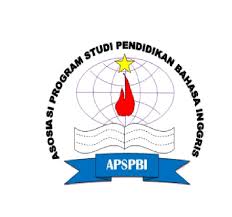English Language Teaching Educational Change: A Retrospective Analysis of Teacher Professional Development
DOI:
https://doi.org/10.22515/elereviews.v2i2.5271Keywords:
ELT educational reforms, retrospective analysis, educational change, the necessities of change, Southwest VietnamAbstract
The importance of English has demanded the introduction of English language teaching (ELT) educational reforms (ERs) in the Vietnamese context. However, the results of these reforms did not satisfy Vietnamese educators; as a result, many studies have explored the related issues, but almost none of them emphasized English as a foreign language (EFL) teachers’ perceptions of the necessities of the reforms. Accordingly, this current study was conducted to fill in the aforementioned gap. Driven by that emphasis, this qualitative study used semi-structured interviews as a data-collecting instrument. Regarding the studied sampling, six EFL high school teachers from Southwest Vietnam were recruited as the interviewees. According to the findings of the present study, teachers in Vietnam strongly perceived the need for ELT ERs. Besides, the reforms were fundamental to help catch up with the era of globalization. At the conclusion of the paper, some discussions focusing primarily on teacher training issues and educational implications, as well as suggestions for future research, were presented.
Downloads
References
Adu-Gyamfi, S., Donkoh, W. J., & Addo, A. A. (2016). Educational reforms in Ghana: Past and present. Journal of Education and Human Development, 5(3), 158-172.
Apple, M. W. (2012). Can education change society? Routledge.
Brown, J. S. (2000). Growing up: Digital: How the web changes work, education, and the ways people learn. Change: The Magazine of Higher Learning, 32(2), 11-20.
Bryderup, I. M., & Kowalski, K. (2002). The role of local authorities in the integration of ICT in learning. Journal of Computer Assisted Learning, 18(4), 469-479.
Burner, T. (2018). Why is educational change so difficult and how can we make it more effective? Forskning og forandring, 1(1), 122-134.
Dang, X. T. (2011). Factors influencing teachers’ use of ICT in language teaching: A case study of Hanoi University, Vietnam. In Simonelli (Ed.), International Conference “ICT for Language Learning” (4th ed).
Dung, D. H. (2004). Centralism–the dilemma of educational reforms in Vietnam. In D. McCargo (Ed.), Rethinking Vietnam (pp. 159-168). Routledge.
El Zaatar, A. W. M. (2011). Resistance to educational change from the perspective of teachers in Al Ain Educational Zone in UAE [Master thesis]. United Arab Emirates University.
Falk, B. (2001). Professional learning through assessment. In A. Lieberman and L. Miller (Eds.), Teachers Caught in the Action: The Work of Professional Development (pp. 118-40). Teachers College Press.
Flamholtz, E. G., & Randle, Y. (2008). Leading strategic change. Cambridge University Press.
Fullan, M. (2007). The new meaning of educational change (4th ed.). Teachers College Press.
Gollnick, D. M., & Chinn, P. C. (1994). Multicultural education in a pluralistic society. Merrill.
Guskey, T. R. (2002). Professional development and teacher change. Teachers and teaching: Theory and practice, 8(3/4), 381-391.
Guskey, T. R., & Sparks, D. (2000). Evaluating professional development. Corwin Press.
Hall, G. (2009). The everyday practices of partnership: The interactional work of participants in a school and university collaboration. In M. Cooper (Ed.). Teacher Education: Local and Global-Australian Teacher Education Association 33rd Annual Conference (199-206).
Hammonds, B. (2002). The latest ideas on school reform by Michael Fullan. Leading and Learning for the 21stC, 1(3).
Harvey, T. R., & Broyles, E. A. (2010). Resistance to change: A guide to harnessing its positive power. R&L Education.
Heller, H. (2010). Language as resource in the globalized new economy. In N. Coupland (Ed.), Handbook of Language and Globalisation. Wiley-Blackwell.
Hugman, R., Durst, D., Loan, L. H., Lan, N. T. T., & Hong, N. T. (2009). Developing social work in Vietnam: Issues in professional education. Social Work Education, 28(2), 177-189.
Huong, P. L., & Fry, G. W. (2004). Education and economic, political, and social change in Vietnam. Educational Research for Policy and Practice, 3(3), 199-222.
Ibrahim, A., Al-Kaabi, A., & El-Zaatari, W. (2013). Teacher resistance to educational change in the United Arab Emirates. International Journal of Research Studies in Education, 2(3), 25-36.
Kellogg, R. T. (2008). Training writing skills: A cognitive developmental perspective. Journal of Writing Research, 1, 1-26.
Kerr, L. (2006). Between caring and counting: Teachers take on education reform. University of Toronto Press.
Knapp, M. S. (2003). Chapter 4: Professional development as a policy pathway. Review of Research in Education, 27(1), 109-157.
Le, V. C. & Nguyen, N. T. (2017). Đề án ngoại ngữ quốc gia 2020 có thể học được gì từ kinh nghiêm châu Á? VNU Journal of Foreign Studies, 33(4), 10-23.
Le, X. M. (2020). EFL lecturers’ needs for professional development: A case study of an institution in the Mekong Delta. Can Tho University Journal of Science, 12(3), 7-16.
Le, X.M., & Nguyen, T. M. T. (2019). Professional development for highschool teachers: A case in the Mekong Delta. In Proceedings of 1st International Conference on Innovation of Teacher Education: Twenty Years of Development: A Model for Inner-Institutional Teacher Training (pp. 74-85). National University Press.
Lee, Y. J., Hung, D., & Cheah, H. M. (2008). IT and educational policy in the Asia-pacific region. In J. Voogt & G. Knezek (Eds.), International Handbook of Information Technology in Primary and Secondary Education (pp. 1119-1132). Springer.
Lingam, G., Lingam, N., & Sharma, L. (2017). Educational reforms and implications on teachers’ world of work: Perspectives of Fijian primary teachers. Australian Journal of Teacher Education (Online), 42(1), 19-35.
Long, P. T., Hue, N. T., Nhat, H. T., Chinh, C. D., Van Tuan, N., Van Anh, D. T., & Ha, L. T. T. (2019). Multicultural Education in higher education in Vietnam. American Journal of Educational Research, 7(3), 189-193.
Mandden, J.,Wilks, J., Maione, M., Loader, N., & Robinson, N. (2012). Journeying together: Understanding the process of teacher change and the impacts on student learning. International Studies in Educational Administration, 40(2), 19-35.
Martin, J. R. (2011). Education reconfigured: Culture, encounter, and change. Routledge.
Nguyen, H. T. M., & Burns, A. (2017). Teacher language proficiency and reform of English language education in Vietnam, 2008-2020. Phnom Penh, 19.
Nguyen, N. H. (2013). Report on orientations in testing and assessment of English and other foreign languages in the national education system during 2013-2020. In Seminar on Strategies of the National Foreign Language Project.
Nguyen, T. D., Bui, T. H. V., Nguyen, T. L. T., Tran, M. D., & Tran, T. K. N. (2021). Perception of organizational support to lecturers’ research motivation: The case of Vietnam. The Journal of Asian Finance, Economics, and Business, 8(2), 657-666.
Nystrand, M. (2006). The social and historical context for writing research. In C. A. MacArthur, S. Graham, & J. Fitzgerald (Eds.), Handbook of Writing Research (pp. 11-27). The Guilford Press.
Paniagua, A., & Istance, D. (2018). Teachers as designers of learning environments: The importance of innovative pedagogies. Educational Research and Innovation. OECD Publishing. http://doi.org/10.1787/9789264085374-en
Peeraer, J., & Van Petegem, P. (2012). Information and communication technology in teacher education in Vietnam: From policy to practice. Educational Research for Policy and Practice, 11(2), 89-103.
Pham, L. T., & Hayden, M. (2019). Research in Vietnam: The experience of the humanities and social sciences. Journal of International and Comparative Education, 8(1), 27-40.
Pham, T. N., & Bui, L. T. P. (2019). An exploration of students’ voices on the English graduation benchmark policy across northern, central and southern Vietnam. Language Testing in Asia, 9(1), 1-20.
Phuong, Y. H., Ly, P. T. B., & Vo, Q. P. (2017). Factors inhibiting English lecturers from doing research: The case of the Mekong Delta, Vietnam. Phranakhon Rajabhat Research Journal (Humanities and Social Sciences), 12(2), 60-72.
Richards, J. C., & Farrell, T. S. C. (2005). Professional development for language teachers: Strategies for teacher learning. Ernst Klett Sprachen.
Tan, C. (2017). Constructivism and pedagogical reform in China: Issues and challenges. Globalization, Societies and Education, 15(2), 238-247.
Thanh, P. T. H. (2008). The roles of teachers in implementing educational innovation: The case of implementing cooperative learning in Vietnam. Asian Social Science, 4(1).
Thao, L. T., & Mai, L. X. (2020). English language teaching reforms in Vietnam: EFL teachers’ perceptions of their responses and the influential factors. Innovation in Language Learning and Teaching, 1-12.
Thieman, G. Y. (2000). Factors influencing middle school teachers to change classroom practice in response to standards-based reform. Portland State University.
Tran, L. T., & Marginson, S. (2018). Internationalisation of Vietnamese higher education: An overview. In Internationalisation in Vietnamese Higher Education (pp. 1-16). Springer.
Villegas-Reimers, E. (2003). Teacher professional development: An international review of the literature. International Institute for Educational Planning.
Vuong, Q. H. (2019). The harsh world of publishing in emerging regions and implications for editors and publishers: The case of Vietnam. Learned Publishing, 32(4), 314-324.
Walker, A., & Dimmock, C. (2000). One size fits all? Teacher appraisal in a Chinese culture. Journal of Personnel Evaluation in Education, 14(2), 155-178.
Downloads
Published
How to Cite
Issue
Section
Citation Check
License
Copyright (c) 2022 Le Xuan Mai, Le Thanh Thao

This work is licensed under a Creative Commons Attribution-NonCommercial 4.0 International License.
Authors retain copyright and grant the journal right of first publication with the work simultaneously licensed under a Creative Commons Attribution License that allows others to share the work with an acknowledgement of the work's authorship and initial publication in this journal.
This ejournal system and its contents are licensed under
a Creative Commons Attribution-NonCommercial 4.0 International License








